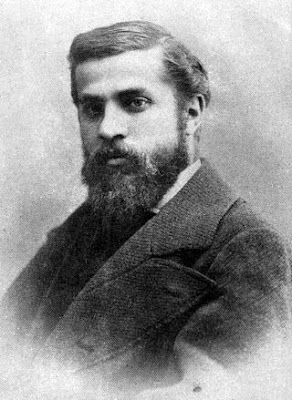....The Monster Was Inhuman...
“It has become appallingly obvious that our technology has exceeded our humanity.”
“Whoever undertakes to set himself up as a judge of Truth and Knowledge is shipwrecked by the laughter of the gods.”
- Albert Einstein
Our reading of Frankenstein (
The Modern Prometheus) by Mary Shelley in Brit. Lit. this week has really brought the subject of Hubris to my mind in many ways. Last semester I wrote a lengthy paper about the pride involved in Nathaniel Hawthorne's story "The Birthmark." Very good short story if you are so inclined to read it, and remotely interested in the symbolic works of Hawthorne - which I surely am. I found there to be some interesting parallels between these two stories of tragic hubris.
The Birthmark has been described as a modern Pygmalion tale, and tells of a scientifically inclined man who is haunted by his wife's birthmark - to the point that he desires to remove it by any means.
Pygmalion desires no woman alive, so he creates a woman of his own out of stone and falls in love with his "perfect" creation. He too is not satisfied with what nature (God) has given him on Earth, and desires to be God by creating what he himself deems to be beautiful and perfect. Like Pygmalion, Hawthorne's alchemist Aylmer in
The Birthmark desires his wife to be a "perfect" example of beauty - begging questions in the reader about the definition of beauty and perfection, as well as the dangers of wanting to create more from nature than has been warranted to humankind; the desire to
be the creator.
I took
The Birthmark, and likewise
Frankenstein, to be examples of hubris or "pride before the Gods," and allegories about the dangers of desiring more than is naturally available to mankind. In
Greek mythology, hubris is a term that is both indicative of an excessive arrogance or self righteousness, and a challenging attitude towards the Gods that eventually leads to the downfall of such a presumptuous individual. Concerning hubris, one can also be reminded of the tale of Lucifer in the Bible, and his arrogance before his creator. Although an angel, he too desired to be God or have Godlike knowledge, and thus his pride gets him cast out of Heaven.
Mary Shelly's
Frankenstein can be seen as an allegory on creation, and the possible perspectives that those created may have towards their creator. Shelley has even been known to call the monster in
Frankenstein "Adam" in reference to the first man in Genesis. And in the novel the Monster says to Victor, "
Remember that I am thy creature; I ought to be thy Adam, but I am rather the fallen angel, whom thou drivest from joy for no misdeed.” This makes an interesting trinity between God, Frankenstein, and his created simulacrum the Monster.
In
Frankenstein, the mad scientist Victor becomes obsessed with the works of the same Alchemists that influenced Aylmer's hubristic acts towards his wife in
The Birthmark; Cornelius Agrippa, Paracelsus and Albertus Magnus. Both characters also desire to uncover the "hidden secrets of nature" and in doing so fancy themselves capable of Godlike actions or improving what has been given to humanity in the natural world.
We also see a second type of trinity in the characters of Victor, Clerval, and Elizabeth. They could represent the physical, moral, and spiritual respectively. This is very similar to the trinity portrayed in
The Birthmark of Aylmer as "spirit" or God, his assistant Aminadab as nature or Humankind, and his wife Georgiana as the combination of the two. Like Aylmer, Victor's downfall comes from his desire to have the power of the Gods, while his two closest friends are examples of just that. He is not satisfied with his creation, is even disgusted by it, because it was not an individual he really desired but the power of the Gods.
By the end of
The Modern Prometheus, the reader can infer that Victor could be seen as God, and some say that it is he who Shelley is referring to as
Prometheus. However, there are several differing versions of the Greek myth, and Prometheus may be embodied by the Monster - a kind of symbolic indirect human representative or human race created from clay. Regardless, the nature of humanity and the destructive nature of pride is at the crux of the emotional effect that the reader experiences with regards to Frankenstein's Monster. We feel for the Monster, he is innocent and childlike. We empathize with his loneliness and the position into which he has been placed due to Victor's pride.

In fact, the roles of Monster and Human seem to almost switch, as we see Victor abandon his childlike creation, and realize that despite their outward appearances, the monster may be more human than his creator. In this trinity of creator and created, Shelly has built a complex structure of comparison between God and Man. One can feel the difference between how Victor behaves with the life that he has been given, his feelings of abhorrence for his own creation, and the attitude of the monster towards his creator and the unnatural life that he has been born into.
The reader can identify with the monster because he represents the "not knowing" and self awareness that is inherent in humanity. The Monster represents the subjective human emotions that we all have, the desire to fit in, be loved, and be regarded with respect from others. We are not however meant to be Gods, and thus we are left relying on faith and we struggle with our lack of foreknowledge.
Just as Victor foolishly acts on his hubris towards his creator, so too does the Monster become a participant in his own downfall when he takes vengeance towards his own creator and feels remorse when he is gone. These insights make all the more potent the subtitle of this novel, as the root of the Greek word
Prometheus is "foresight." Foresight can be seen as one of a few combatants against hubris and the resulting regret that always follows such arrogance. In this instance however, I believe that Shelly is referring more to the Greek myth of Prometheus and that the etymology behind his name is an added ironic aside.
In
Hesiod's Theogony, Prometheus tricks Zeus into taking an offering of bones wrapped in fat and in retaliation, Zeus hides the gift of fire from humanity. Not to be outdone by the Gods, Prometheus steals fire back and returns it to the humans and is punished severely for this crime. In some versions of the tale, Prometheus is even said to be the creator of mankind.
These aspects of the different versions lead one to believe that it is indeed the Mad scientist that is Prometheus, especially considering his trickster like nature and pride.
The best stories seem to be the ones that make us, the reader, feel strongly for the characters and learn from what is reflected or implied in the writing. Just as the symbolism behind the birthmark in Hawthorne's tale of hubris can be interpreted in several ways,
Frankenstein is open to the perspective of the reader. But even in interpretative writing, some things are meant to be gleaned from the story for certain. There is reader interpretation, but there is usually a core message that the writer hopes will come across in their arrangement of events and characters. In these two tales it is the dangers of hubris and acts that cross the line from human, into the unnatural.
If you would like to read Nathaniel Hawthorne's
The Birthmark you can do so
here.
You can also read Mary Shelley's
Frankenstein here.




















































